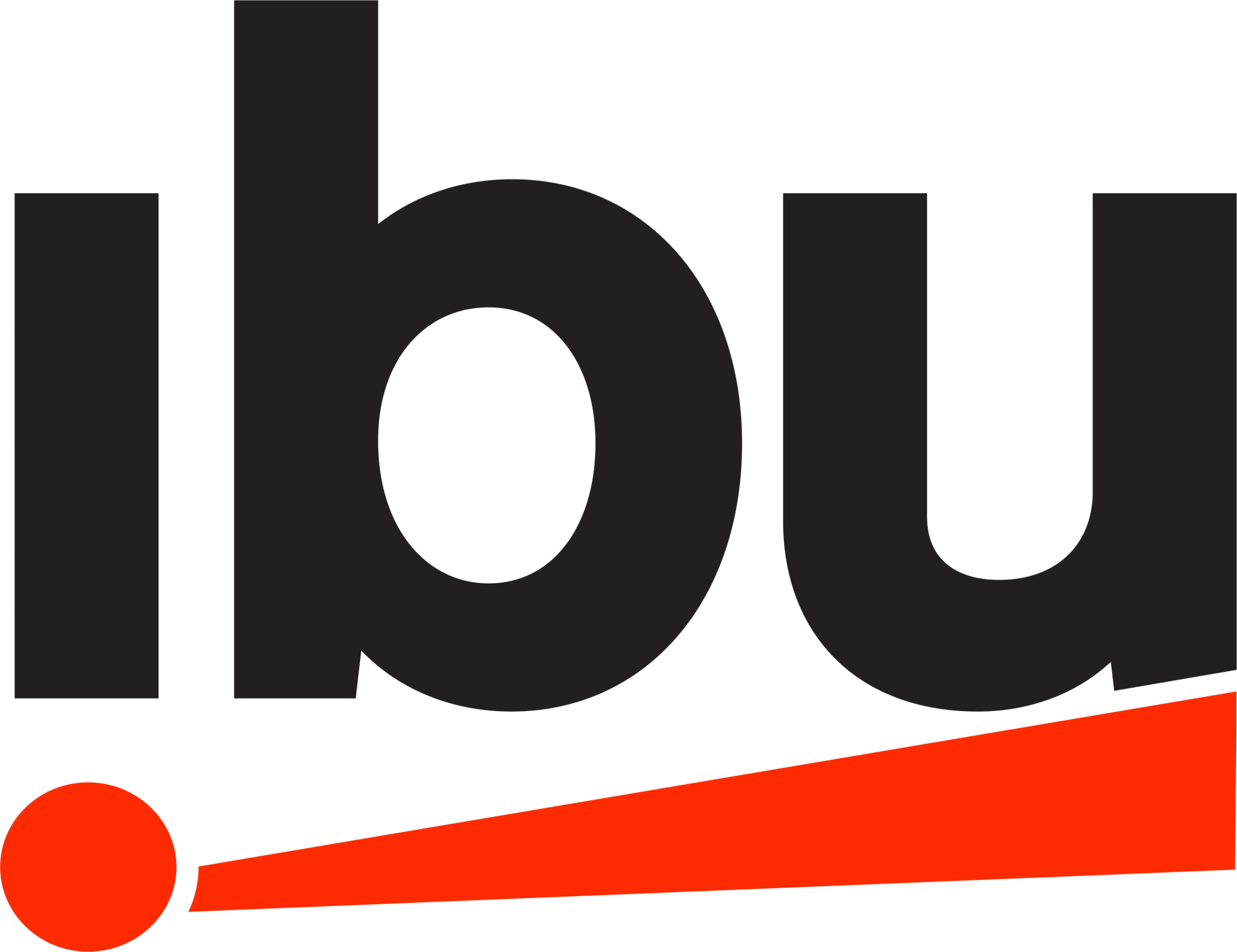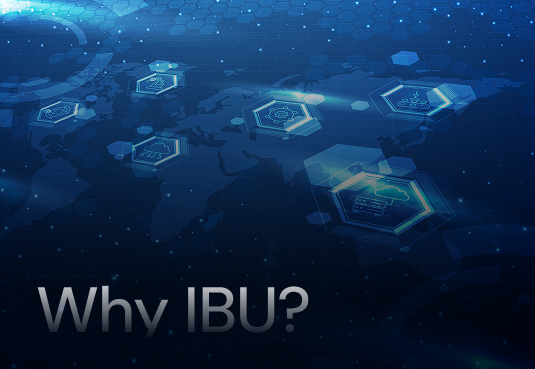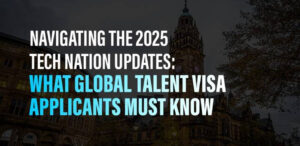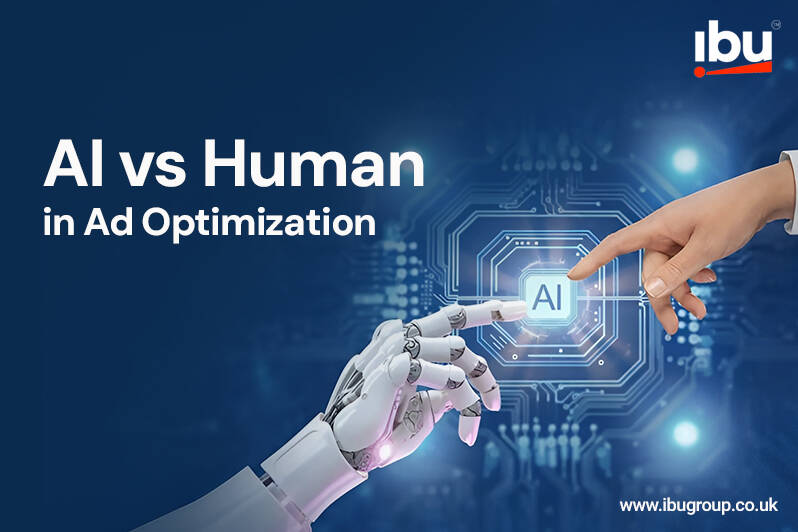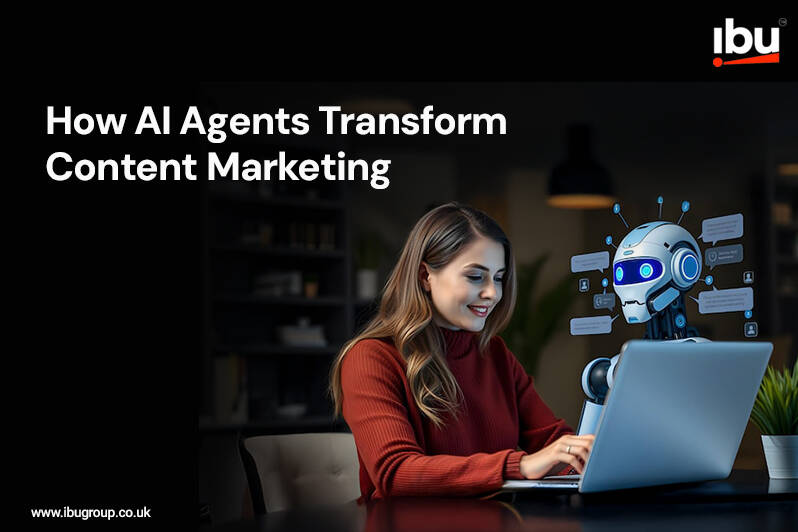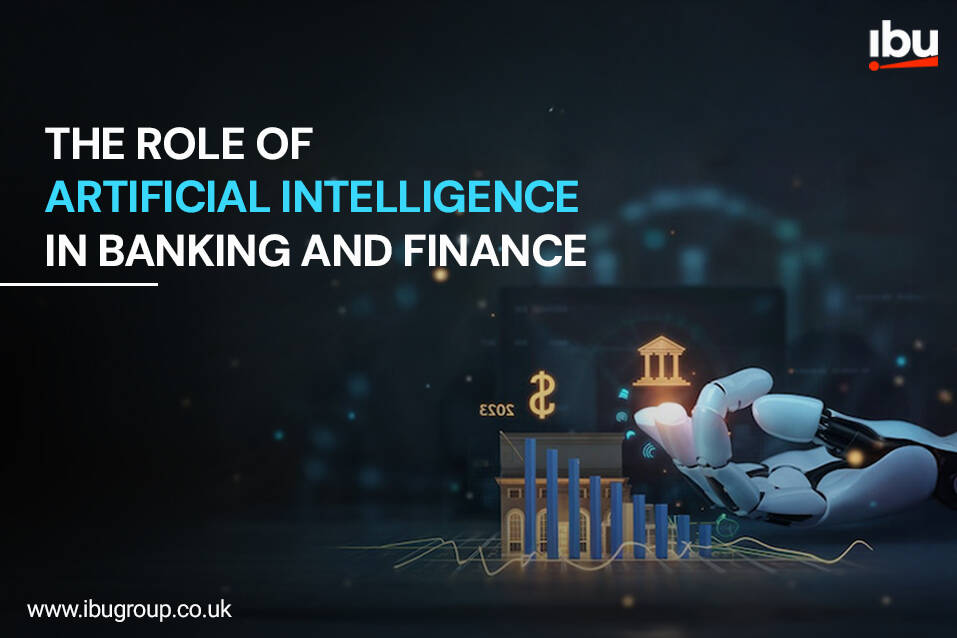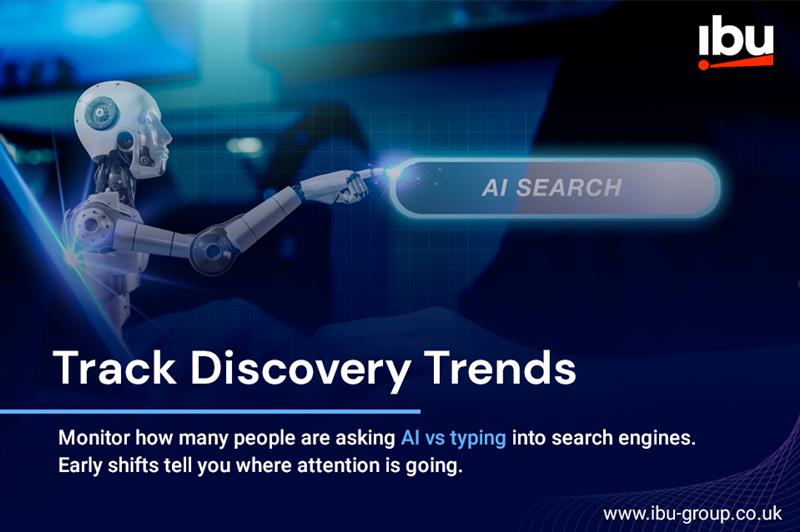
Track Discovery Trends
The way people discover information online is quietly but radically changing.
It’s no longer just about ranking higher on Google or mastering SEO. The rise of Large Language Models (LLMs) like ChatGPT, Gemini, and Claude has introduced a new kind of digital behavior one that’s conversational, contextual, and increasingly trusted.
At IBU, we call this the next era of discovery.
And for brands that depend on digital visibility, understanding it early means staying relevant when the rules change.
1. Search Is Turning into a Conversation
Traditional search has always been transactional: you type, it lists.
LLMs flip that completely now users ask instead of search. They want dialogue, not data dumps.
This shift from keywords to conversations means your brand content needs to do more than exist it needs to talk like your audience, understand intent, and offer real clarity.
When users start asking AI tools instead of typing into Google, they’re not browsing links they’re trusting answers. The question is: will you be part of that answer?
2. The Accessibility Advantage: Don’t Stay Hidden Behind Walls
Here’s the catch LLMs can’t read what they can’t reach.
If your best insights, guides, or reports are locked behind logins, PDFs, or gated landing pages, they simply won’t appear in AI-generated responses.
Brands that make high-value content publicly visible will have a major advantage.
By opening select resources think, how-to’s, explainers, industry insights, you increase your discoverability, authority, and chance of being referenced in AI outputs.
Visibility isn’t just SEO anymore. It’s AI-visibility and accessibility is your ticket in.
3. Speak Like Humans, Not Headlines
Generative AI tools understand meaning, not metadata.
That means readability, tone, and intent matter more than ever.
Forget over-optimized keyword stuffing. Instead, write in natural language the way your customers actually talk.
If your audience says, “best no-code tools for startups” instead of “enterprise-grade digital enablement solutions”, your content should reflect that.
The future belongs to brands that can simplify complexity without dumbing it down.
4. Broaden Topics, Not Just Structure
For years, SEO strategies revolved around perfect URL structures and tightly organized directories.
LLMs don’t care about that. What they care about is depth and diversity of content how widely and meaningfully you cover your niche.
So instead of building a tree of categories, think of it as building a knowledge ecosystem.
Write about related topics, answer the side questions, and create enough surface area for LLMs to learn from you.
In the era of AI discovery, context is the new keyword.
5. Measure What Matters, But Stay Skeptical
Unlike traditional search analytics, LLM discovery doesn’t come with dashboards (yet).
There’s no “search volume” for AI queries, and no way to measure how often your content shows up in generated answers.
That’s why experimentation matters but so does caution.
Use emerging AIO (AI Optimization) tools to test visibility, track conversation patterns, and analyze what kind of content performs best.
But remember: the data is still early. Be curious, not conclusive.
So, What Should Brands Do Next?
The shift from search to conversation is already underway.
Forward-thinking brands are not just adapting; they’re designing for the future of discovery one where being found means being understood.
Here’s how to start:
- Track how your audience interacts with AI tools vs traditional search.
- Reassess your content accessibility strategy.
- Simplify your language without losing your edge.
- Build topic depth across interconnected ideas.
- Explore AIO tools and stay ahead of the learning curve.
The Takeaway
Search is evolving into something more human and more intelligent.
LLMs aren’t killing SEO; they’re complementing it with context, nuance, and conversation.
At IBU, we help brands translate this complexity into clarity building strategies that align with the next phase of digital behavior.
Because in the future of discovery, it’s not about being seen first.
It’s about being understood best.
